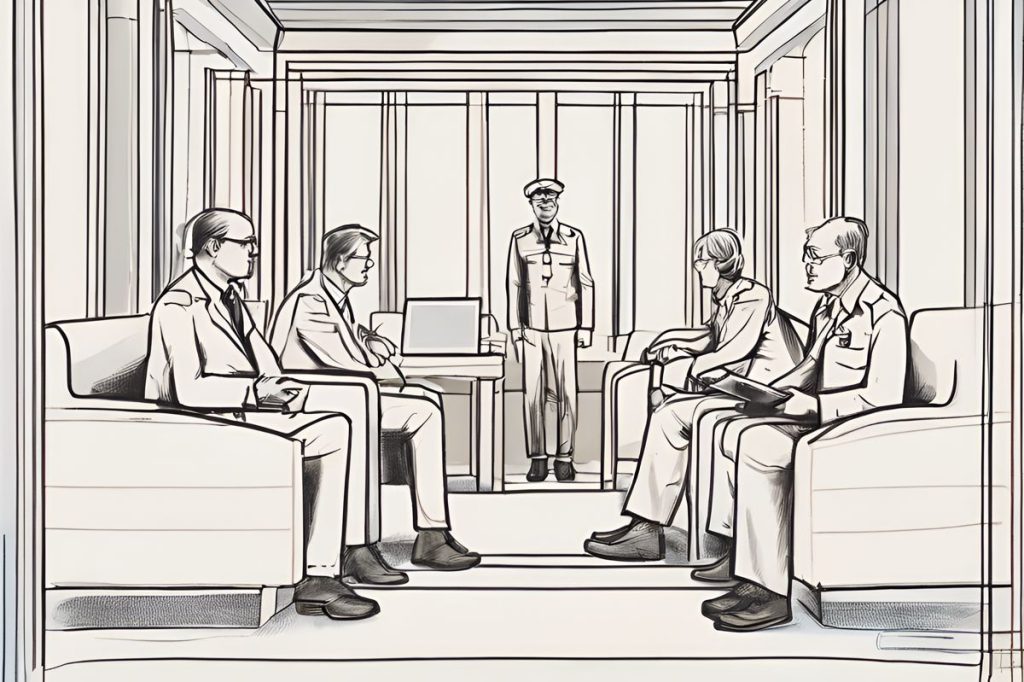The civil service promotion scheme has undergone a significant overhaul, shifting towards a merit-based evaluation system that prioritizes skills and qualifications over tenure. Performance evaluations, supervisors’ recommendations, and additional experience and qualifications will play key roles in determining promotions from 2023 onwards, aiming to create a more efficient and effective civil service.
What is the new promotion scheme for civil servants?
The new promotion scheme for civil servants emphasizes merit by prioritizing skills and qualifications over tenure. Key points include:
- For 2023: Performance (15%), supervisor recommendations (25%), additional experience and qualifications (up to 30%).
- By 2025: Performance evaluations (up to 30%), superiors’ recommendations (up to 20%), experience and qualifications (up to 25%).
- From 2026: Performance (45%), superior’s recommendation (15%), experience and qualifications (20%). This promotes a merit-based, efficient civil service.
Civil Service Promotion Overhaul
In a significant shift from the past, promotions within the civil service are poised to undergo a transformation. The introduction of a new evaluation system has sparked a debate, one that reached the chambers of the House finance committee on a recent Monday. The aim? To remedy the issues that surfaced with the system’s rollout. This new system pivots towards recognizing skills and qualifications over the tenure, a move away from the older, less effective model where nearly all personnel were rated ‘excellent,’ thereby hindering the selection of the most suitable candidates for the job based on merit.
The old regime of promotions relied heavily on seniority, pegged to the date of hiring, which often failed to reflect the true capabilities of civil servants. The pursuit of excellence in public service delivery fuels this overhaul, seeking to carve out a meritocracy within the civil service. Yet, the new approach has not been without its detractors, prompting a trio of political parties—Diko, Edek, and Dipa—to propose legislation aimed at smoothing out the system’s rough edges.
Addressing the Dissent
The change has not been universally well-received. A ripple of unrest has spread among civil servants, manifesting in protests against the new evaluation framework. Giorgos Papageorgiou, who helms the Public Service Commission, informed members of parliament that the Commission had been inundated with applications for vacancies, all of which must navigate the currents of the existing framework. Under the old system, the assessment of a civil servant up for promotion carried a 45% weight. However, under the proposed legislative changes, this figure would be slashed to 15%.
The finance ministry and civil servant trade unions have signaled a general consensus on the bill, which proposes a temporary recalibration of promotion criteria. For 2023, performance would influence promotions to the tune of 15%, with the option of a 25% weight for supervisors’ recommendations, supplemented by up to 30% for additional experience and qualifications. The bill outlines a gradual return to a more performance-focused assessment by 2026, with performance evaluations slated to count for 45%, a testament to the drive for efficiency and aptitude in the civil service.
The Road Ahead
Looking to the future, the legislative proposal sketches a roadmap for the evolution of the civil service promotion system. By 2025, the criteria would shift concurrently with the system’s bedding in, with performance evaluations—based on service reports from 2023 and 2024—accounting for up to 30%, recommendations of superiors for up to 20%, and experience and qualifications for up to 25%. This tiered plan underscores a commitment to a more dynamic and equitable approach to career advancement within the public sector.
From 2026 onwards, the architects of the bill envision a fully implemented evaluation system where the weighting rests at 45% for performance, 15% for the superior’s recommendation, and 20% for experience and qualifications. This long-term vision aims to establish a promotion system that rewards merit, fosters professional development, and, crucially, enhances the quality of public service. These changes, still in the crucible of legislative debate, hold the promise of a more robust and fair public sector, one where excellence is not just encouraged but expected.
What is the rationale behind the new promotion scheme for civil servants?
The new promotion scheme aims to shift towards a merit-based evaluation system that prioritizes skills and qualifications over tenure. This change is driven by the need to create a more efficient and effective civil service by selecting the most suitable candidates for promotion based on merit rather than seniority.
How will the new promotion scheme for civil servants be implemented?
The new promotion scheme will be implemented gradually, with different criteria and weightings for promotions over the years. For 2023, performance evaluations will count for 15%, supervisor recommendations for 25%, and additional experience and qualifications for up to 30%. By 2025, performance evaluations will increase to up to 30%, recommendations of superiors to up to 20%, and experience and qualifications to up to 25%. From 2026 onwards, the focus will be on performance (45%), superior’s recommendations (15%), and experience and qualifications (20%).
How have civil servants responded to the new promotion scheme?
There has been some dissent among civil servants regarding the new evaluation system. Some have protested against the changes, citing concerns about the impact on promotions and career advancement. However, the finance ministry and civil servant trade unions have shown general consensus on the proposed legislation, which aims to gradually transition to a more performance-focused assessment by 2026.
What is the long-term vision for the civil service promotion system?
The long-term vision for the civil service promotion system is to establish a merit-based system that rewards performance, fosters professional development, and enhances the quality of public service. By 2026, the promotion criteria will heavily emphasize performance, superior’s recommendations, and experience and qualifications, with the aim of creating a more robust and fair public sector that encourages excellence.

